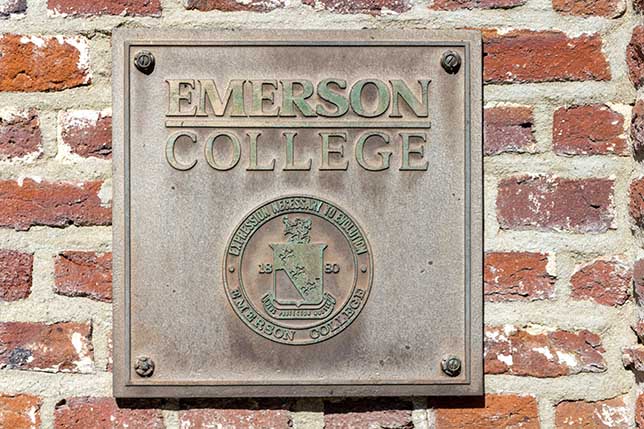
Emerson College Responds to Spike in COVID Cases
- By Matt Jones
- April 09, 2021
Emerson College, located in Boston, Mass., has imposed several temporary restrictions in response to a spike in positive COVID-19 cases on campus. The changes took effect at 5 p.m. on Wednesday, April 7, and will last for at least a week, according to a community-wide email from Emerson’s assistant vice president for campus life, Erik Muurisepp.
In-person classes will continue, but all other in-person student activities have been cancelled. Both indoor and outdoor athletics and student organization meetings are on hold, as are on- and off-campus film productions. The Dining Center will offer to-go meals only. The fitness center is closed, the library is available only for socially distanced studying and reserved study spaces, and student travel is temporarily prohibited.
The capacity for all on-campus spaces (besides classrooms and dorms) has been reduced to one, according to an email from Student Engagement and Leadership Director Jason Meier.
The college took these measures following a week in which 36 students tested positive for coronavirus out of 7,112 tests given for a positivity rate of 0.51%. The campus newspaper, the Berkley Beacon, reports that 28 community members are in isolation on campus, while 48 are in quarantine. This compares to the one community member in isolation and three in quarantine on March 30.
“We also request that students not attend social events or gatherings in the community and not host any guests in their residential rooms or apartments,” Muurisepp said in his email. “Visiting other residential rooms or lounges other than where you reside is not permitted.”
On April 1, Muurisepp said that seven community members had tested positive, and that the cases seemed to be linked within a group of people. An additional anonymous source linked that initial cluster of positive cases to campus athletic teams. “There do seem to be some connections between some cases, and there also seem to be just general positives from the general community—outside Emerson community exposure,” he told the campus newspaper.
Many Emerson students expressed dismay at returning to the kinds of conditions and restrictions in place at the beginning of the fall semester. “I have been working really hard with my roommate to follow the rules. We keep our circle very small,” said sophomore Kathleen Nolan. “We’re both involved in various organizations that have been cut down a lot because of the pandemic, and we’re both missing out on a lot of things, and it is frustrating that it’s a small group of people that are ruining it for everyone.”
Although Muurisepp said that the college hasn’t seriously considered sending students home for the semester, calling it a “super last resort,” some of them wonder whether it’s all that far-fetched.
“Why aren’t we just going home at this point?” said freshman Evan Taylor. “There’s so little time in the semester. It seems like a lot of things to sacrifice in order to preserve a very small amount of time here.”